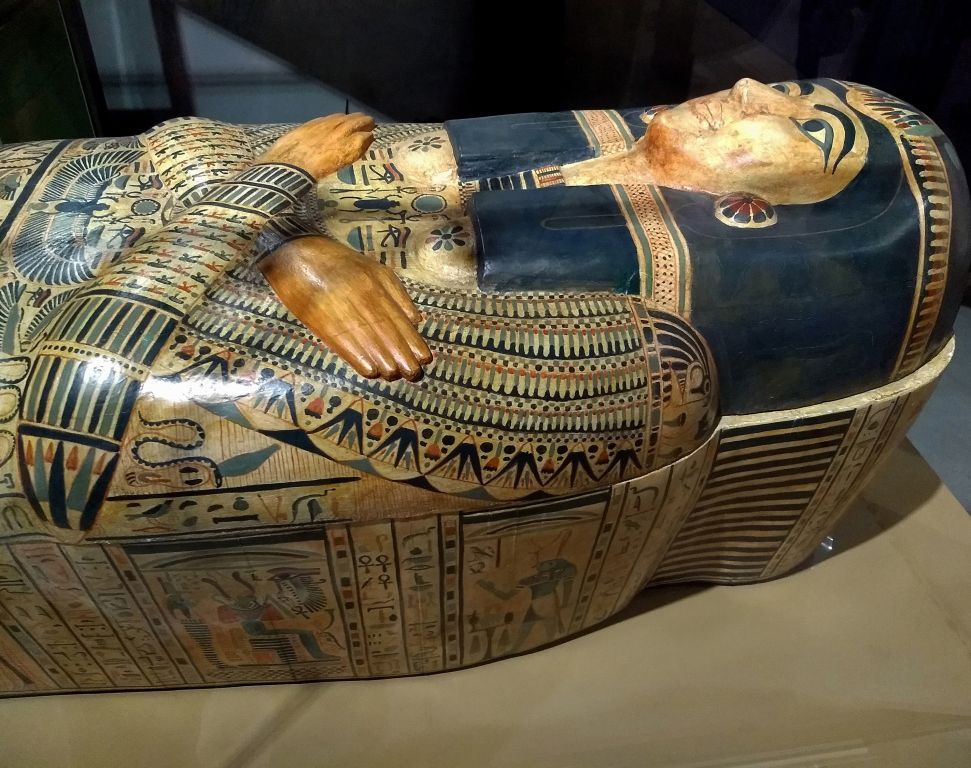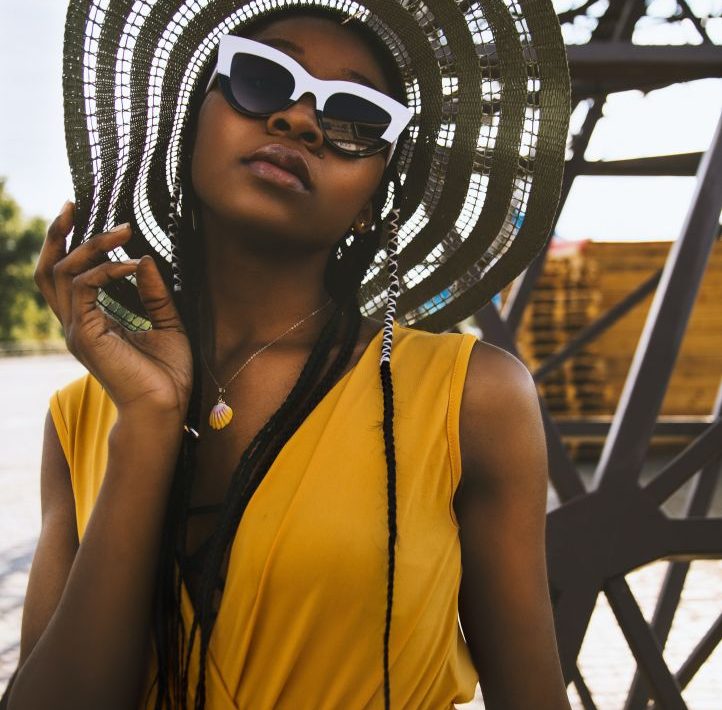Afrika: Same Old Story?

Samuel Phillips is a writer, graphic designer, photographer, songwriter, singer…
Truth be told, sometimes, I think it’s a bit difficult to clearly understand the Afrikan narrative of backwardness, underdevelopment, slavery, colonialism and even the current neo-colonialism project that we are dealing with right now and how the entire Afrika seems to be in some form of war with foreign powers who are bent on sucking up everything called Afrika and Afrikan, though subtility. And I say it seems hard for me, not really because it was supposed to be hard to figure out, but because the more you understand it from one aspect the more other aspects come up that seem to completely undermine and downright tear down what you have understood. Personally, I still don’t understand why Afrika still falls into the same carrot trick that the foreign nations dangle before her eyes even when we know that for generations, the Afrikan people have been abused and re-abused all over, with nothing much done to stop such abuse even when those who could see into the future gave the much needed advice and counsel that could have averted such abuses.
Almost all Afrikan nations right now are operating at the mercy of foreign powers, either because they have been burdened and silenced because of heavy debts or because of the fear of foreign militaries and the havoc they can cause in their nations and governments. But my concern is this: is there anytime in the history of Afrika, especially as it concerns the coming of the white man, that Afrikans themselves were not spiritually warned of the coming of foreign white skins and the harm they would bring with them to the borders of Afrika? The answer is no. Afrikans have always had spiritual channels through which they get foresight and counsel concerning the future and by that are prepared to tackle whatever it is that comes. But if you ask me, and from the way we are still grappling with foreign issues even in this age that we are in, it does not look like we have mastered how to strategically use foresight of the future to our advantage.
I will share two stories here that speak of how Afrikans have always had prophetic counsel about what is to come.
The story of Prophetess Mepoho, from the Giriama people of Kilifi county of coastal Kenya, speaks of a prophecy that she gave concerning the coming of the white man to the east Afrikan coastline. Is is said that there is a shrine (Panga) at Kableni which is believed to have been a place of prayer used by her. It is not clear whether she lived to attain old age but it is believed that “one day she demanded that a spiritual dance (Ngoma za Pepo) be performed at Kaloleni as she had an important message to tell the tribe. So it was that the dance was performed.” She sat on her three-legged traditional Giriama stool. As the drummers performed their act Mepoho got possessed and started to narrate her prophecy thus”.
“There will come a people with white hair like sisal fibers. When these people come. You will also see vehicles in the sky, on the waters and on the land.
You will see young girls giving birth to babies.
They will also take snuff.
When you see these things happen,
your culture will be destroyed.
And your land shall be taken away from you”. She ended by saying
“I have told you of these things. I am tired. I do not want to see our culture destroyed. Am going away.”
Clearly, this prophecy has come to pass.
Here is another case of the Rwanda king, Nazimpaka Yubi III (end of the seventeenth century), who in a dream saw pale-skinned men coming from the east. He took up his bows and arrows, but before letting the arrow fly, he tied ripe bananas to the shafts. The interpretation of this dream by the spiritualists in his palace showed an attitude, one which is aggressive and welcoming, and in short ambiguous, and which imparted a special image to the collective consciousness of the Rwanda people, and may have had something to do with the fact that although they were seasoned warriors they did not put up much resistance to the German columns in the nineteenth century.
These are just two instances out of many, that show that Afrikans were clearly aware of the coming of the white man and the warning to be aware of what his intentions are and how to stand against it.
Afrikans have always had prophetic counsel about what is to come.
Samuel Phillips
It’s happening again
Even a blind man can tell that Afrika has already fallen into the same position she found herself in centuries ago when she didn’t take so seriously the defense of her land from the invading foreigners. But this time, Afrika really does not need any one prophet or prophetess from a church or a mosque to tell her that the intention of nations like China, France, Russia, te US, UK etc in asking Afrika to come to their various tables or that the supposed foreign investments in Afrika are just like bananas tied to an arrow and a carrot tied to a stick. We are clearly seeing what is going on in the white farmers’ compensation story of Zimbabwe and the destabilizing effects it will have shortly, the GMO seeds/foods and the killer chemicals infiltration of Afrika by foreign corporations like Bayer ( Former Monsanto), the Chinese debt bonanza that has the ability to make key sectors of Afrikan life completely taken over by the Chinese government and the many other compromises that both Afrikan governments and Afrikans themselves are making, for selfish reasons.
It is true that for some centuries the Afrikan has had many reasons for not being conscious of responsibility. He has been accustomed to so many alienating dictates coming from outside that even if he lived far from the slave coast or the seat of the nearest white officer, some part of his soul was bound to be marked with the annihilating brand of the serf.
At first glance, and from many ethnological studies, one gets the impression that Afrikans were submerged, almost drowned, in mythical time, a vast ocean without shores and without landmarks, while the other peoples of the world advanced down the avenue of History, a great highway marked out with the milestones of progress.
But I do not believe that the Afrika of now, with all her teeming collection of brains and human resources should remain in the same spot of the mistakes their forefathers made, either by not taking stronger stands against imperialism, colonialism and the many other “isms” or by the way of compromises for selfish gains.
Who will change the story?
It appears that everything that some of the founding fathers of the OAU said during the early stages of Afrika’s independence from colonial masters is actually happening in our days, just as the words of those ancient prophecies and dreams came to pass in the era of colonialism. But I am not one who likes to sit on my backside complaining of what was and what is not. I believe in the ability to change stories from the popular narrative to a new one that both engineers and energizes progressiveness. In other words, I am tired of the stale story of foreign oppressors coming to Afrika to do this or that even when all Afrikan nations are supposed to be sovereign states, just because we are not fighting towards one goal as Afrikans or because we keep selling out our inheritance for gains. But the question is this, who will change the story?
No one else but you and me
From all indications and from the fact that the miracle of change has not happened by some game of chance or magic even after sixty years of independence in Afrika, shows that the work to change our continent lies in our collective awareness that we have issues that we need to urgently deal with, our resolve to change and also our awareness that we must be strategic in our dealing with these issues. Like it has been said and even over-said, the solution to Afrika’s problem lies in the hands of Afrikans. But the question is this, do we really have those who are solution bringers in Afrika or are we just talking? The answer is yes we do. But another question is this, why are the solutions so long in coming? Well, I do not have any one single answer for this question even though it is clear as daylight that we need a quick solution like yesterday.
Are we sabotaging ourselves?
Well maybe, maybe not or just maybe we are not aware or we choose not to be aware that we are not helping ourselves get ahead. I remember in our last issue, we had an interview with the renowned Kenyan pan-Afrikanist Professor PLO Lumumba. In answering one of the questions put to him about the issues in Afrika, I can’t remember exactly which question, he spoke about the now recently-concluded World Trade Organization leadership race in which a new director-general was being sought for to replace the Brazilian Roberto Azevedo, who stepped down a year earlier than expected. Among those contesting for that position from Afrika were Kenyan Minister of sports Amina Mohamed, former Nigerian Minister of finance Ngozi Okonjo-Iweala and Egypt’s Hamid Mamdouh. His concern was that, why did Afrika not pick just one candidate to represent her interest and then let all Afrikan states support that one candidate till the seat was secured, instead of having multiple candidates from Afrika contesting among themselves and by that Afrika may have ended up losing in the race.
(At the time of publishing this article, Nigeria’s candidate, Ngozi Okonjo Iweala, had just been selected to take the seat.)
Even though I am not familiar with the process for picking the candidate for the seat of WTO director general and how just choosing one candidate from Afrika according to PLO would help Afrika secure that seat, I understood what PLO was talking about from the perspective of a pan-Afrikanist. We as Afrikans have lost so much over the years because we keep fighting to make names for ourselves as separate Afrikan nations instead of putting our resources, votes, voices, talents, skills together to have a thriving and a collective Afrikan continent. A one united Afrika that can withstand the strength of the outside world. But this cannot and will not happen by some magic, but through a selfless and a pan-Afrikan approach to dealing with issues.
To prove my point about how selfless we must be in order to achieve a thriving Afrika that is based on love, unity, brotherhood etc, I read somewhere online where the same Prof PLO Lumumba was quoted as having said that, for the position of the director general of the WTO, he would prefer Nigeria’s Okonjo Iweala because she was more qualified for the job as opposed to Amina Mohamed, a fellow Kenya like himself. Many must have castigated him for his choice, but I think I understand what his thinking is.
Now I am not using his perspective in any way to support a Nigerian candidate or whatever, but that if we all can begin to think pan-Afrikan instead of just of our nations of origin, just maybe we can help ourselves break this stronghold that is holding Afrika back from getting to her best.
Afrikan free trade area
The Afrikan Continental Free Trade Area, which will be operational from 2021, I believe has come to test our hearts and zeal concerning creating a united Afrika, just like Covid-19 came to show us that with one voice and a synergy of strength, we can achieve anything as Afrikans in Afrika.
I am one among a few who wishes not to be referred to or known by any lone nationality in Afrika but as an Afrikan. Meaning that every Afrikan has the right to be home in any part of Afrika they find themselves.
That would be a new Afrikan story.
What's Your Reaction?
Samuel Phillips is a writer, graphic designer, photographer, songwriter, singer and a lover of God. As an Afrikan content creator, he is passionate about creating a better image and positive narrative about Afrika and Afrikans. He is a true Afrikan who believes that the true potential of Afrika and Afrikans can manifest through God and accurate collaborations between Afrikans. Afrika is the land of kings, emperors, original wisdom, ancient civilizations, great men and women and not some road-side-aid-begging poor third world continent that the world finds joy in undermining.













